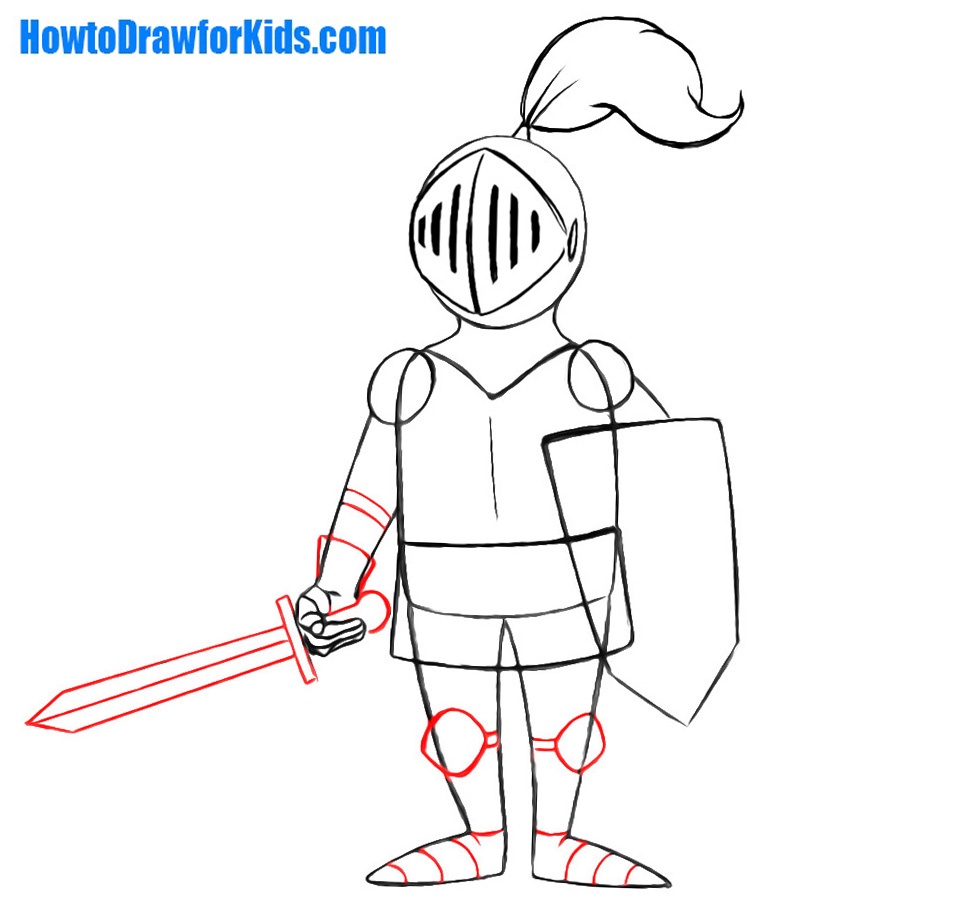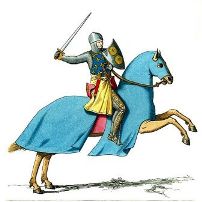Lords And Knights For Kids

A King's daily life: A medieval King would wake up early in the morning. He would start his day by going to the chapel and praying. He then ate a light meal. Throughout the day, he would attend meetings, discuss laws to be passed, hear petitions and so on.
Around midday, he would attend dinner, which consisted of many different courses. After dinner, he was free to do whatever he pleased. He sometimes went out and hunted with his dogs. Near the end of the day, he would eat supper, a lighter meal than dinner. The Queen and he would say their prayers, and then go to sleep. The King and Queen lived in a very elegant castle and had many servants to take care of them throughout the day.
The largest, and most powerful of the Christian military orders, the Poor Knights of Christ and the Temple of Solomon, widely known as the Knights Templar, was founded in 1118, in the aftermath of the First Crusade, to help the new Kingdom of Jerusalem maintain itself against its hostile Muslim neighbors, and to ensure the safety of the large numbers of European pilgrims who flowed towards.
A Noble's daily life: A medieval Noble also woke up early. He went to the chapel in his castle, and had a prayer session. He attended breakfast and then spent the day attending to business matters in relation to his land. He would go to meetings and discuss marraiges, crops, people's complaints, and other things that he was in charge of. He ate a dinner around noon as well.
The rest of the day, he could hunt, visit the fields to make sure they were being properly run, or do whatever he pleased. He had evening prayer, and then went to supper. After supper, there would sometimes be entertainment such as acrobats or jesters in the castle's dining hall. After the day's festivities, the Lord would say his nighttime prayers, and go to sleep. Nobles lived in castles in the middle of a manor.
They were in charge of everything that went on in the rest of the manor. Nobles often had control over the Serfs, or Peasants bound to the land.
They had to give them permission to marry and made sure they were always correctly planting crops. A Noble's life was similar to a Kings, except they were of a lower rank.
A Knight's daily life: Knights woke up at dawn. They attended morning mass and ate breakfast. Afterward, they would go to weapon practice, and practice his fighting skills.
He would also discuss war strategies. In the afternoon, Knights would work with their horses and do more training. They would also go with their Lord when he went hunting, hawking or inspected the castle. Their day ended in festivities, supper and prayer. Although a Knight's life was similar to a Lords and a King's, he was more focused on learning his fighting skills and preparing for battles. It was not easy to become a Knight.
Starting at a young age, a boy who wanted to be a Knight had to work as a Page. He would help Knight's take care of their horses and weapons. After a Page, the boy became a Squire.
Squires helped Knights in battle and were taught everything they'd need to know from a Knight. Eventually, the Squire went through a religous ceremony called a 'Dubbing Ceremony' where he fully became a Knight. All Knights were expected to follow a Code of Chivalry.
The Code of Chivalry was a set of tenets that Knights had to follow such as: truthfulness, courtesy, compassion, purity, and fellowship. If a Knight didnt follow the code, he would be punished and would no longer be worthy of his Knightship. A Peasant's daily life: A Peasant in the middle ages did not have a very nice life. There were two types of Peasants, Serfs and Freemen. Freemen were not owned by anyone. They could own their own land, marry when they pleased and farm their own crops.
A Serf however, was owned by the Lord and bound to the land. They had to farm the Noble's land and get the Noble's permission to marry. They started working as early as 3 A.M.

In the morning. They would eat a small breakfast and then head out to the fields. They did tasks such as: reaping, sowing, plowing, binding & thatching, haymaking, threshing, and hedging. They worked from dawn til dusk, and didn't have much leisure time when finished.
Women usually ate when their husband came inside after the day's work. A Peasant worked long hours and then came home to a small, cramped house.
The houses often had one room where many people lived. The houses were located in the villages inside the manors. Life for a Peasant was not pleasant at all compared to the lives of Kings, Nobles and Knights. Felspire game. Living in a castle was much more luxurious than living in the village.